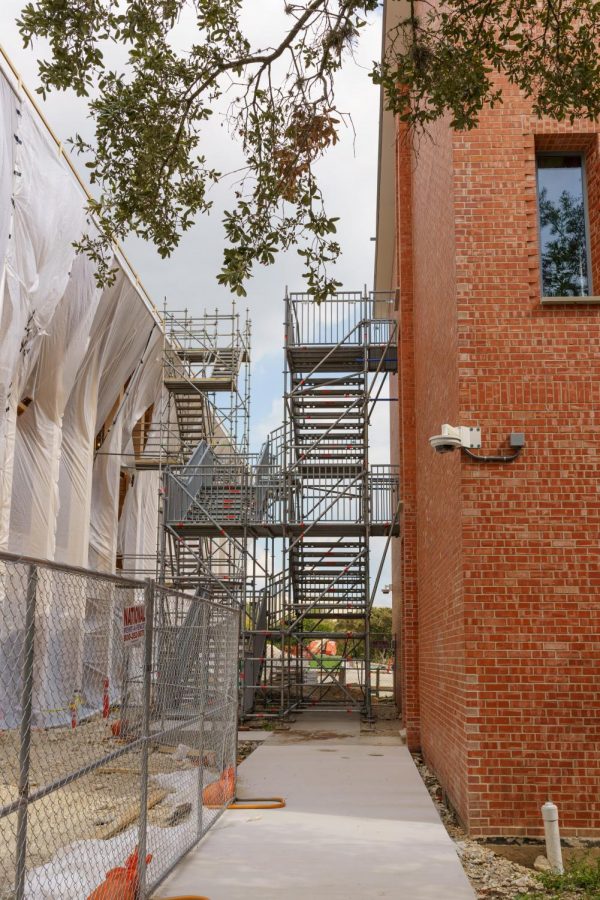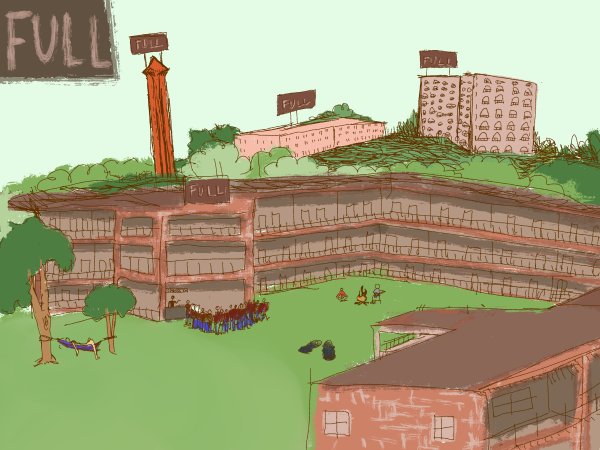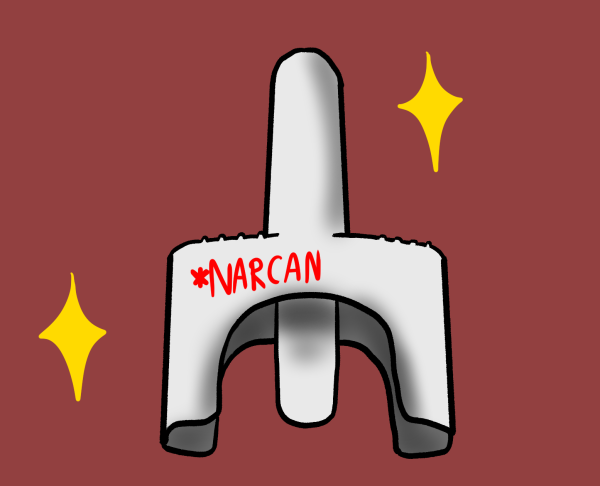Dicke Hall to house humanities departments, foster departmental collaboration
The building is expected to be ready for use by summer 2022
In the past few months, Trinity has begun construction on a new building, Dicke Hall. This addition will host many humanities departments and opportunities, including the English and religion departments and the Humanities Collective.
As part of Trinity’s projects, Chapman Hall and Halsell Hall have also been renovated. Dicke Hall should be finished by early summer 2022, with faculty and classes moving into the building by the Fall 2022 semester. In tandem, Dicke, Chapman and Halsell will act as a new home for humanities classes and community.
Faculty in various departments formed a committee to create programs and work with architects for the new and recently improved buildings. Ruben Dupertuis, chair of the religion department and co-chair of the committee, reflected on the goals of this renovation.
“One is to create a sense of identity within and across the departments, and I think we’ve been able to do that through these renovations,” Dupertuis said. “Another goal is to update some of the classroom spaces. There are six big classrooms, additional smaller spaces, Trinity’s first dedicated screening room and a 100-person dedicated lecture hall. Another aspect of what we did was to be student-centered. All the departments have spaces that are devoted to students.”
While providing spaces for humanities programs at Trinity in general, these renovations act as a positive force for individual departments as well.
“The religion department is currently in Chapman, so we will be moving into Dicke Hall. We are leaving Chapman, where we have been for a long time. It’s a real positive. Chapman was long overdue for a renovation. It’ll be great to get one for all the people who will still be in there,” Dupertuis said.
Kathryn Vomero Santos, English professor and co-director of the Humanities Collective, explained the potential opportunities that this new hall will offer for English students.
“We’re also looking forward to having new flexible meeting spaces where we can gather as a department and where our students can come together to continue building on our strong community of English majors and minors,” Santos said. “The new building will provide space for initiatives like the Early Book and Manuscript Lab and student-led publications like The Trinity Review, and it will allow us to host guest lectures and film screenings relevant to our teaching and research.”
The first floor of Dicke Hall will also be the headquarters for the Humanities Collective and the Mellon Initiative. The Humanities Collective at Trinity is dedicated to allowing students and faculty to explore their interests in humanities-based fields. The Mellon Initiative gives undergraduate students the opportunity to do research in the arts and humanities. These programs do not have a building at the moment.
“Our hope is that we will be able to work toward becoming a Humanities Center once we move into Dicke Hall,” Santos said. “We are eager to spotlight and support faculty research in the humanities and to create programming that fosters community engagement and humanistic inquiry.”
Lauren Turek, director of the Mellon Initiative and professor of history, said that Dicke Hall will allow the Humanities Collective’s projects to reach more students.
“In the new location, the Humanities Collective and the Mellon Initiative will be able to foster more opportunities for community building as well as undergraduate research,” Turek said. “There will be new spaces for students to gather informally, and there will even be lab space for humanities and art labs that will support student research projects, the Mellon-funded Humanities and Arts Labs and other collaborative ventures with faculty.”
Because of the layout of these buildings, Dicke, Chapman and Halsell will foster affinity among humanities students.
“In addition, the new building, in concert with the renovated Halsell and Chapman, will be part of a cluster of buildings where humanities departments will live. This proximity to each other — and to the library, which many of us think of as another lab or research hub for humanities scholars — will create productive collisions and community amongst humanities students and faculty. This complex offers new places to study, congregate and relax together after classes, and those new spaces will encourage greater sociability,” Turek said.
Dicke Hall, along with the renovations to Chapman and Halsell, shows Trinity’s continued dedication to students interested in the arts and humanities.
“It’s pretty extraordinary that in an era that a lot of universities are downsizing, where a lot of humanities departments take a beating, Trinity has remained committed to the humanities,” Dupertuis said.

My name is Emma and I am a sophomore from Lockhart, Texas. I have worked at the Trinitonian since Spring 2021. I am an English major and hope to become...

My name is Sam (he/him) and I'm a photographer here with the Trinitonian. I'm a senior Communications and German double major from Austin, Texas, and...
















